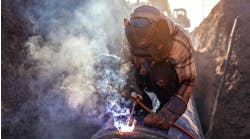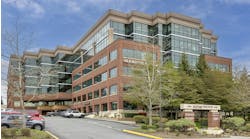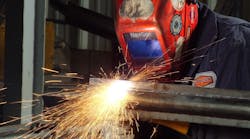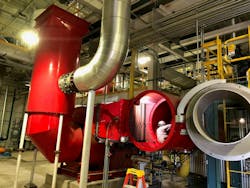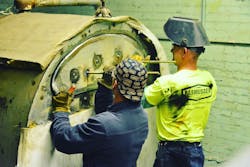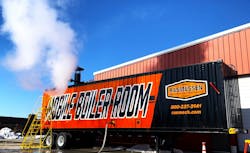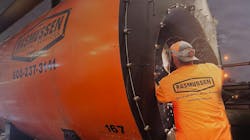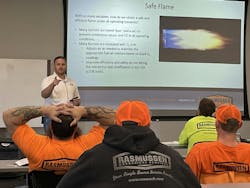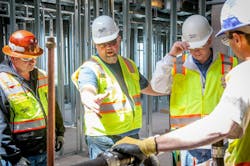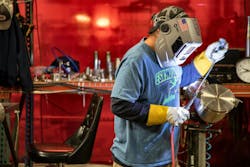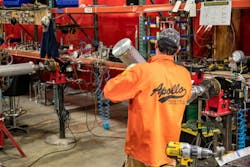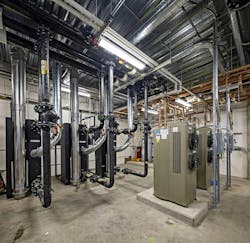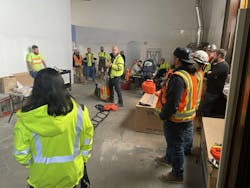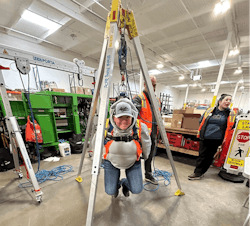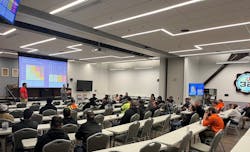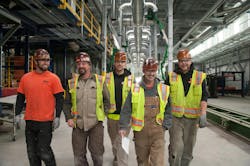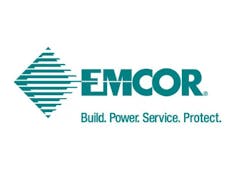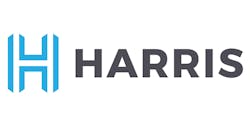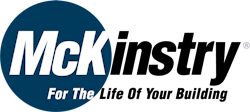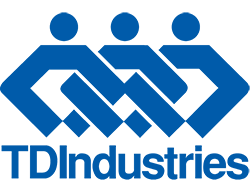Latest from Book of Giants
Sponsored
Rasmussen Mechanical: Adapt, Overcome and Advance
COUNCIL BLUFFS, IOWA—A family-run business with a team of more than 200 skilled technicians across six locations, Rasmussen Mechanical Services offers solutions ranging from industrial air services, boiler repair, industrial burner services, mechanical construction, HVAC, rental equipment and more. And in the 55 years of service, the team at Rasmussen has seen its share of ups and downs during uncertain times to know that staying flexible is the key to success.
With any uncertainty—especially when it pertains to the economy—there can be consumer trepidation, as they remain cautiously optimistic, or as optimistic as they can be. As contractors move along under a new administration, there seems to be an underlying sentiment of uncertainty, and one of those nebulous areas is the introduction of international tariffs. “We’re seeing a mix of responses across the industry when it comes to the new tariffs. Some equipment manufacturers have already raised prices, while others are holding off to see how things play out. In most cases, once prices go up, they rarely come back down—so there’s concern about long-term cost increases,” says Ryan Waldron, Marketing Manager, Rasmussen Mechanical Services.
Consumer Confidence
Waldron says overall there’s a “wait and see” mindset across Rasmussen’s customers and peers for capital projects. “The uncertainty is making it harder to forecast costs and timelines. Supply chain concerns are still lingering too, so many are keeping a close eye on how things evolve before making major decisions. Repair-type projects were accelerated early this year to try and ‘beat the tariff’ and keep their costs low.”
Over the next few years, Waldron says that most in the mechanical and construction space are preparing for steady—but not booming—activity. Commercial construction looks steady for the next few years, especially in areas like data centers, healthcare, and manufacturing projects.
“From our side as a mechanical services provider, there’s still plenty of work—especially on projects that need complex systems or long-term maintenance support. The bigger challenge is dealing with labor shortages and unpredictable material costs. A lot of companies are taking on work, but they’re doing it more carefully—bidding tighter and planning around what’s available,” says Waldron.
Nevertheless, when the economy does turn “shaky,” Rasmussen adheres to some strong business tenets to help navigate through uneasy times, which includes not putting all of its eggs into one basket. “We work across a lot of different industries, so if one slows down, we’ve still got others rolling,” says Waldron.
In addition, Rasmussen pushes maintenance heavily. “Helping customers stay ahead of breakdowns saves them money—and keeps our crews working even when new projects slow. This is even more important when the economy slows and facilities run equipment past design life,” says Waldron.
Finally, investing in their own and building strong customer relationships helps build a formidable business toughness. “The more skilled our team is, the better we can handle whatever comes our way, and when you take care of customers the right way, they come back—and they bring their friends,” says Waldron.
Technology & Training
Technology is advancing everywhere in the mechanical and PHVAC industries—smart controls, automation, remote monitoring, etc., and it's not just about making systems run better, it’s also changing how one services and troubleshoots equipment. According to Waldron, that’s a big shift. “What we’re seeing now is that the folks who really thrive in these roles aren’t just good with their hands—they’re also tech-savvy. You’ve got to know how to troubleshoot smart controls, run equipment performance trends, and adapt to new tools. Most younger folks still don’t realize how much tech is involved in the trades today, but the ones who do get it tend to stick around because they see the challenge and variety it brings.”
And with that advancing technology, comes the need for further training and education, “We’re always learning—and making sure our team and our customers are, too. About once a month, we host trainings for customers on everything from boiler maintenance to controls. Internally, we’ve got manufacturers and vendors coming in almost every month to train our techs on the latest equipment and tools,” says Waldron.
Rasmussen also records a lot of these sessions so its crews can go back and watch them anytime. Just recently, the company had Autoflame come in and do a deep-dive, two-day training on its burner controls, and 35 employees attended. Rasmussen also hosted the Compressed Air Challenge, which is backed by the US Department of Energy, to help its technicians, engineers and customers save energy and money in their compressed air systems. “Bottom line: the technology is always changing, and we’re making sure our team is ready for it,” says Waldron.
The Human Touch
No matter how much technology evolves—whether it’s AI, automation or smart systems—this industry still runs on trust and relationships. “We’ve always been in the people business. Most of our work comes from repeat customers who know we’ll show up, do the job right, and stand behind our work. We focus on taking care of customers and have enjoyed steady growth instead of constantly chasing new customers. Technology helps us work smarter, but it’s the human connection that keeps customers coming back,” says Waldron.
Apollo Mechanical: Safety at the Center of Operations
KENNEWICK, WA — Apollo Mechanical, headquartered in Washington state, performs full mechanical projects across the United States and around the world. The company employs over 2,000 people, with annual revenues of over $600 million, making them the 5th largest contractor in the nation.
The company officially began operations as Apollo Sheet Metal in 1981 under owner and founder Bruce Ratchford, who brought a decade of experience in mechanical design and business management to the project. Ratchford took his inspiration from the Apollo space program, which he felt represented the best of the American spirit: setting audacious, remarkable goals and then achieving them through know-how, grit, and a shared sense of mission.
Creating a Safety Culture
Those are all qualities the company embraces to the present day. Added to them has been a passion for safety evident in every job the company undertakes. That safety culture is also the product of choices made by Apollo’s owner and founder. In the early 2000s Ratchford had a number of friends and family working at the company. Then there came two serious safety incidents within the space of a couple months, which sparked a period of intense consideration.
Eric Henley, who works as Regional Safety Manager for Apollo, recalls the moment. “He put it pretty bluntly, ‘If we can't do this work safely, we are not going to do this work.’ And that just made everybody rise up. Now, instead of thinking about how to get it done, it's how to get it done safely.”
Safety is emphasized in the onboarding process and is viewed as a responsibility shared by every team member, no matter their role. That even goes as far as the types of jobs the company will and won’t bid on. “And we've had to say no a couple of times because of that. But that's one of the reasons why we have such a great safety record,” Henley says.
Every year the safety team meets with field leaders to work on a company training plan. Past safety incidents are reviewed, including feedback from field teams. Specific requirements—from OSHA, Oregon OSHA, Department of Labor & Industries, or any general contractors the company is working with—are incorporated into the plan.
Every month, the company does a review and assessment to make sure the plan is using the latest requirements, data and industry best practices. Different groups in the company then customize the plan, depending on the specific risks those groups need to deal with.
Partnering for Success
The pursuit of excellence in any area of contracting—be it estimating, prefabrication or safety—often means turning to outside experts. And sometimes, if you’re lucky, those experts find you.
Apollo had a longstanding relationship with ACCU, a construction firm working out of Tustin, CA. ACCU had improved its safety programs and safety outcomes through a partnership with Werner Co., a company best known as a manufacturer of ladders and fall prevention equipment. Milt DeAsis, a Jobsite Safety and Security Manager with Werner decided he had to reach out to Apollo.
“They had a very low EMR score [Experience Modification Rating, a number typically used to price workers compensation insurance ratings],” DeAsis says. “I was in shock that they actually had a better EMR score than Best Buy, which is incredible considering one is a construction company and the other is a retailer!”
With ACCU supplying the introduction, Werner has since become a dependable resource for Apollo whenever the company has questions or concerns about the complex and varied safety standards throughout the West Cost. For example, a recent series of jobs had an Apollo team doing cross-border work in both Oregon and Washington. Werner was able to create a chart for the company making it easier to understand the code differences between the two states.
Moreover, Werner has relationships at the American National Standards Institute (ANSI) Board to keep the company well ahead of any new standards or regulations that might be in development.
As a manufacturer, Werner can provide a wealth of technical know-how on specific safety equipment and its application. And, naturally, the company is able to create customized trainings for Apollo technicians.
“We had a need, where we were rolling out one of [Werner’s] products on one of our high-rises,” Henley says, “a 33-story building in downtown Seattle. We wanted to use their ladder rescue system, which I wasn’t familiar with, but I knew was a good product. Milt came out, opened one up in front of the entire crew and showed them how to use it.”
Putting People First
The entire industry has had to learn a hard lesson in recent years: that the dangers of working in construction can extend beyond the workplace.
Construction workers face unique stresses ranging from long or irregular hours, to economic instability stemming from seasonal work, to a culture that sometimes perceives seeking help for mental difficulties as weakness. Construction can be physically demanding, and workers in pain may over-medicate or self-medicate, leading sometimes to addition problems.
Around 15% of all construction workers in the United States have a substance abuse disorder compared to 8.6% of the general population of adults, according to data from the National Survey on Drug Use conducted by the Substance Abuse and Mental Health Administration (americanaddictioncenters.org). Male construction workers commit suicide at an incidence of 45.3 per 100,000—the second most frequent among industry categories, according to the Center for Disease Control (www.cdc.gov/suicide/disparities/index.html).
Apollo’s response has been the Home Healthy Home Safe program. Part of the program consists of weekly trainings devoted to mental health. Another part has been dedicated individuals to help team members access the information and resources they need in a confidential manner.
“We hired a couple individuals that are trained to respond to people in crisis, people that are stressed out, and get them to those resources,” Henley says. “We also do QPR [Question, Persuade, Refer], which is geared towards suicide awareness and prevention. We've had a lot of different saves throughout the years. And it's something we take very seriously.”
But more than any one program, Apollo is trying to make concern for the overall well-being of its people a part of the company culture. “It really starts with the top-down, and I think Eric can agree with me on that,” DeAsis says. “The feeling that I get when I speak with some of [Apollo’s] superintendents or laborers, they feel like they are safe. And this company feels like a home to them.”
“I think people around the industry are recognizing how important the safety of a job site is to their well-being,” Henley adds. “At the end of the day, everybody wants to go home safe.”
Giants in the News
Andy J. Egan Co.
MUSKEGON, MI — Five years after mechanical contractor Andy J. Egan Co. (Egan) acquired Muskegon-based Pressures & Pipes, the company is rebranding the location. Since 2019, Pressures & Pipes has been operating as a d.b.a. (or "doing business as") of Egan, but now has been fully integrated into the Egan company as its Muskegon branch. The team at that office will continue to be the premier source for mechanical contracting in the Muskegon area, and most customers will not be impacted by this change.
"We initially kept the Pressures & Pipes brand for a smoother transition," says Andy Jasper, Egan's President. "Recently, this has become a source of confusion for customers, indicating that it was time to make a change. Because the company has legally been a part of Egan for years, very little is changing operationally, and customers will continue to experience the same outstanding service by the same crews that they've come to rely on."
EMCOR
DENVER, CO — EMCOR’s long history of corporate responsibility is built on a commitment to touch the lives of people in meaningful ways. This last Christmas, Trautman & Shreve, an EMCOR company, supported the Denver Santa Claus Shop, a nonprofit that brings the magic of Christmas to families in need. This organization provides an opportunity for parents to shop for free toys, ensuring that every child experiences the joy of the holiday season.
E. M. Duggan
CANTON, MA — This past year, E. M. Duggan supported the “A Bed for Every Child” a non-profit dedicated to providing the children of Massachusetts with safe and comfortable beds. E. M. Duggan team members donated their time and skills to build 20 beds for the organization.
Harries Companies
ST. PAUL, MN — For the third year in a row, Harris has received a 2025 Top Workplaces USA award. The Top Workplaces USA award recognizes organizations that have created exceptional cultures and prioritize giving their employees a voice.
“We’re so proud to be named a Top Workplace again in 2025 and deeply grateful to our remarkable team for making it possible,” says Michel Michno, CEO. “Their incredible dedication and enthusiasm help us improve year after year. We’re blessed to have such engaged employees who continuously push Harris to grow and create a workplace where everyone can thrive.”
The Top Workplaces list is determined entirely from employee feedback gathered through a third-party research firm, Energage, LLC. Their anonymous survey measures 15 components related to engaged work environments, company culture, leadership and job satisfaction.
McKinstry
SEATTLE, WA — In March of 2025, McKinstry joined industry peers in celebrating Women in Construction (WIC) Week. Started by NAWIC and now in its 27th year, WIC Week shines a light on the vital contributions of women in the industry, raises awareness of challenges faced and highlights pathways for future opportunities.
To celebrate, McKinstry employees across the country gathered to screen the documentary Women of Carbon. The film features women professionals thriving in built environment industries. These professionals are redefining our relationship with carbon by repurposing living materials, reengineering waste into valuable chemicals that clean the climate and driving decarbonization.
Following the Seattle showing, McKinstry’s Caroline Traube, Principal and Director of Zero+ decarbonization planning lead a panel discussion with employees and other women professionals to discuss the impact of the film and work.
Shapiro and Duncan
ROCKVILLE, MD — Shapiro & Duncan participated in the Worlds of Work (WoW) event in Montgomery County MoCo CAP in March. WorkSource Montgomery and partners Montgomery County Public Schools (MCPS) and Montgomery College (MC) hosted around 2,500 MCPS eighth-grade students during its inaugural, three-day event held at the MC Rockville campus.
Shapiro and Duncan brought its popular PVC Piggy Bank activity for the numerous students who came by the booth. Attendees learned about construction and took home something they made. The event brought employers from all industries to students and inspired them to think of their future careers.
TDIndustries
“This recognition is a testament to the dedication and hard work of our employee-owners,” said CEO Frank Musolino. “For nearly 80 years, we’ve been committed to building not only exceptional projects but also exceptional careers. Our focus on servant leadership and excellence continues to set us apart. I am incredibly proud of our team’s passion, teamwork and commitment to delivering lasting value to our customers and communities.”
Wiegmann & Associates
DENVER, CO — Multiple members of the Wiegmann Associates team joined nearly 40 members of Unified Group at the BIM/Prefab Forum in Fort Myers, Florida, this April to share insights and innovations. Wiegmann collaborated with industry leaders, attended panels and presentations about innovative new technology solutions, and toured B&I Contractors’ Fort Myers facilities.
“B&I employees were all so generous with their time and effort to make everyone feel welcomed while sharing their knowledge and successes,” said Todd Jacks of Wiegmann Associates.
Steve Spaulding | Editor-inChief - CONTRACTOR
Steve Spaulding is Editor-in-Chief for CONTRACTOR Magazine. He has been with the magazine since 1996, and has contributed to Radiant Living, NATE Magazine, and other Endeavor Media properties.
